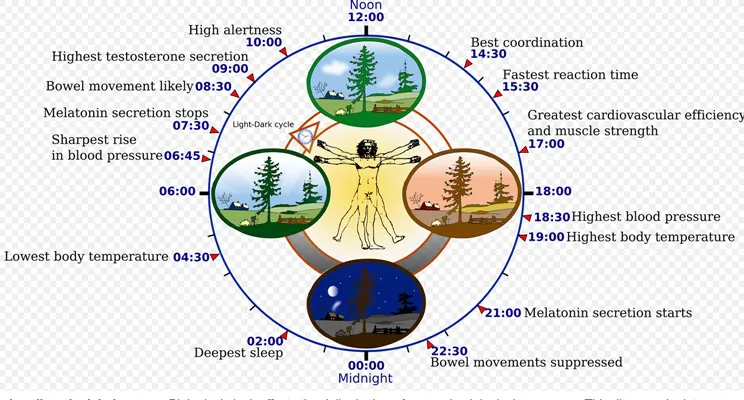
Fat Hair or Tight Jeans Crash Dieting & Telogen Effluvium
Introduction
When I see ads for quick weight loss diets, I'm reminded of the severe damage they impose upon unsuspecting hair follicles. Juice fasts and other popular quick-reduction diets may help shrink people into skinny jeans overnight. They can also cause luscious hair to shrink along with the fat. Unfortunately, many people are unaware of the dangers of quick weight loss and the stress which occurs to their strands. Craving chocolate in the middle of the night is only one side effect of crash dieting. Sudden and prolonged hair loss may hit unsuspected weight watchers before they can enjoy their svelte new shapes.Sudden Hair Loss & Strict DietsIt's a proven scientific fact that a diet that weighs in at less than 1,200 calories a day can trigger sudden diffuse hair loss, known as Telogen effluvium. Note: Telogen effluvium (TE) is not the same as Anagen effluvium (AE), with is sudden hair loss from chemotherapy or radiation treatments. The body often reacts to the physical stress of severely reduced calories or necessary nutrients by falling out in clumps. Diets that are especially low in protein are the most suspect. When the body is deprived of sufficient protein through dieting or other abnormal food consumption, it will become malnourished. The Body Reacts To Threats Of Survival
The human body is a fantastic machine. If the threat of survival is present, the body will shut down all hair production. It does this by devoting all its energy to conserving vital body organs. The body saves protein by shifting healthy hairs in an average growth phase (anagen) into a sudden resting phase.Under healthy conditions, about 85-90 percent of all hair is in a growing phase. Only 10 percent of hair is usually in a resting phase before it ultimately falls out after a few months as part of the standard hair growth cycle.Hair Is Forced Into A Sudden Resting PhaseTelogen effluvium does not usually cause bald patches, but it prematurely forces a much more significant percentage of scalp hair into a sudden resting phase. Hair forced into an early resting period will always react by thinning and falling out. Experts in dermatology and hair loss generally agree that the timing regulation of the hair growth phases is quite complex. Teloptosis Is the Termination Of The Telogen PhaseTeloptosis is the termination of the telogen phase with hair shedding. The initiation of the next anagen phase is independent of teloptosis. Distinct factors trigger both events. Teloptosis results from the loss of adhesion between cells of the club hair and those of its epithelial envelope. In essence, teloptosis synchronization is perceived as telogen effluvium, related or not to the shortening of the anagen phase. Subtle changes leading to early or delayed teloptosis affect hair density. It's possible to distinguish two types of telogen hairs on a trichogram.Those with an epithelial sheath indicate strong binding, suggesting early telogen, whereas the absence of an epithelial sheath indicates loose binding, conveying teloptosis. Hair Loss Cycles During Crash Dieting
Massive hair shedding may not happen immediately after a new fast, or similar crash diet is started. In some cases, there is a two to three-month delay between the actual start of the diet and the actual beginning of hair loss. Sometimes a person will have stopped crash dieting only to experience sudden hair loss months later. This can cause confusion regarding the cause of sudden hair loss. If you crash diet for two months and then experience Telogen effluvium hair loss, your hair may not stop falling out until several weeks after discontinuing dieting. The regrowth cycle for hair lost to TE can last anywhere from 6 to 12 months after the Telogen effluvium-related hair loss subsides. This means the total hair loss and regrowth cycle can last 6 months, or possibly longer, when induced by the physical stress of calorie deprivation. The physical stress of extreme weight loss may increase the production of androgens, the male sex hormones that are destined to kill hair follicles. Once the androgen production is increased, and the hair follicles are destroyed, no regrowth will occur. Although most people experience total hair regrowth, some people won't be so fortunate. Limited caloric diets and large weight fluctuations may trigger more permanent genetic hair loss conditions to appear earlier than usual. Prolonged crash dieting by people genetically predetermined toward hair loss can result in hair that is lost forever. Dermatologists & Tests For TE
A good dermatologist or other hair loss specialist can make a proper diagnosis to determine what type of hair loss you have. Although some people assume their sudden hair loss is TE, it might be some other hair loss condition that was coincidentally triggered because of a TE type of situation. Some women, after childbirth or during menopause, will also experience TE. This is a temporary form of hair loss triggered by hormonal changes and crash diets (loss of over two pounds a week) or prolonged emotional stress. If it's determined that you have pattern hair loss, this is more difficult to treat. Rogaine may help this form of hair loss, but it may not. Some hair loss physicians will recommend a thyroid and iron (serum ferritin) test to determine your current hair loss condition and possible cause. Other hair loss experts will be able to make a complete diagnosis with an entire history and a simple examination. Laboratory testing may not be necessary is some cases since there are just a few common causes of hair loss that can be related to most points by a true hair loss expert. Scalp biopsies are rarely necessary except in extreme cases. Be prepared for your appointment. Read what you can about your suspected condition and take a notebook with your concerns and questions. Ask questions about what may have caused the condition and how you can best treat your loss. As a rule, doctors usually give you more attention if they feel you are knowledgeable. Women Are At Most RiskAlthough both women and men are susceptible to Telogen effluvium, dermatologists and other hair specialists report that women have a higher risk of experiencing the condition from prolonged crash dieting. Some prescription drugs used in weight loss programs may also cause temporary hair shedding in some users. Many Vitamin A-related drugs may impact hair loss when applied topically. Some more popular antidepressant drugs are also suspected of causing TE-related hair loss. Other drugs suspected of causing hair loss include some blood thinners like Comarin or Heprin and some cholesterol drugs such as Clofibrate. Other Possible TE TriggersBesides crash dieting, women will often experience Telogen effluvium immediately after giving birth, during times of chronic emotional or physical stress, and from hormonal swings. TE hair loss has also been reported by women approximately 3-4 months after terminating a pregnancy. Studies have shown that women taking oral contraceptives for many years have some risk of developing sudden hair loss condition. Other causes of TE may include:
People suffering from eating disorders such as bulimia and anorexia also experience sudden hair loss at some point during the disease. Permanent Or Temporary Hair Loss?Although there are various professional opinions about TE and its ultimate impact, dermatologist and other hair experts generally agree that for the majority of people who experience TE, hair loss is not permanent. Hair loss can be categorized as hair shaft abnormalities, permanent alopecia, or nonpermanent alopecia. Androgenetic alopecia is considered progressive. Nonpermanent alopecia, the most common type, includes telogen effluvium, alopecia areata, and traction alopecia. The hallmark of the non permanent alopecia is the possibility of complete regrowth with adequate treatment. Hair Loss Will Likely Stop After The Condition Is ResolvedTelogen effluvium will generally stop approximately four to fourteen weeks after the condition's cause is resolved. There are exceptions to every rule, and some people have reported TE-related loss and regrowth lasting up to one year. Other TE victims have even experienced chronic Telogen effluvium (CTE). In the case of chronic TE, the hair regrowth may be interrupted by more periods of sudden shedding. There have been cases reported where TE was triggered, went into remission, and continued to start again over a multiple-year period. Everyone is different and will experience TE in their unique way. Although telogen effluvium, the most common type of diffuse hair loss in both women and men, is usually self-limiting. In some rare cases, the condition may become chronic if the trigger is not identified and corrected. SprironolactoneSome dermatologists specializing in hair loss may prescribe Spironolactone (brand name Aldactone) or "Spiro" to help with Telogen effluvium conditions. Spiro is an anti-androgen that blocks the androgens from the hair follicle. There have been reports of interrupted TE-related hair loss due to taking Spironolactone. Ironically, Spironolactone is not FDA-approved for hair loss and is approved as a prescribed aide to lower blood pressure. Some patients discovered that the drug would stop the TE shedding and help speed hair growth. Even more encouraging is that Spiro does not seem to cause hair loss when the drug is discontinued. Not everyone can handle Spiro, and some will experience a worsening of their hair loss condition. Only hair loss specialists can decide whether a patient is a good candidate for Spironolactone.No one should ever consider taking Spironolactone without the advice of their dermatologist or a hair loss physician. Head For The RogaineThe Dermatology Association of America officially recommends that "rogaine 5% (the Upjohn brand of minoxidil) should be used in cases of chronic telogen effluvium". Not everyone agrees with this recommendation for several reasons. Some hair loss specialists have concerns about a 5% formulation of rogaine. The concern is that the 5% formula may cause ultimate long-term systemic problems for the body. Some experts are concerned because there has not been enough long-term history to know when a high dose of rogaine is used for more than short periods. Do you have to take rogaine forever once you start? There is a lot of disagreement about this topic, but many experts believe that using rogaine for 6-12 months will help to resolve chronic TE and allow expected hair growth resumption. The manufacturer of rogaine disagrees. In some literature, Upjohn suggests that rogaine must be taken for life once the treatment is started. While this may be true for some hair loss conditions, this does not seem to be the case for most people with TE. There are other known problems with Rogaine. Some people report that it can cause anything from mild to extreme itchiness. It can also be messy, causing adjacent sections of hair to appear greasy and oily. Prevention Is The Best MedicinePractice prevention whenever possible. Some weight loss specialists believe taking special nutritional supplements during weight loss programs will prevent dieting-related hair loss. This may or may not be accurate. Nutritional supplements and vitamins usually can't prevent or stop hair loss linked to rapid and massive weight loss. Alternative Treatment OptionsAlthough many people suffering from TE will work with a dermatologist or licensed hair loss professional to halt the hair loss, others have found some success with alternative treatments. Consider using alternative healing treatments such as aromatherapy, acupuncture, and acupressure. They have been proven to work successfully for some people. Herbal formulas and essential oil massage treatments enjoy a measure of success. While many of the treatments will work for a large majority of TE sufferers, not all treatments will necessarily work for everyone. Do your homework before you select alternative treatment methods, and talk to others with similar TE hair loss issues to get their experiences. SummaryPrevent Telogen effluvium by consuming the proper amount of protein and calories during a reduction diet. Love your hair and avoid diets that trigger weight loss of more than 2 pounds per week. If you lose too much weight overnight, you may have to buy a new wig to wear with your new skinny jeans. Hair by Barbara Lhotan, Photos by Tom Carson, Makeup by Linzie Wilford |
||||||||
|
If you want to talk more about this or other hair care articles on HairBoutique.com or anywhere else, please post a message on HairBoutique.com's Hair Talk Forums.
|
Social Media Network Information
Please follow us on Twitter at: https://Twitter.com/HairBoutique. I look forward to meeting new people from all walks of Twitter and learning from their Tweets.




















